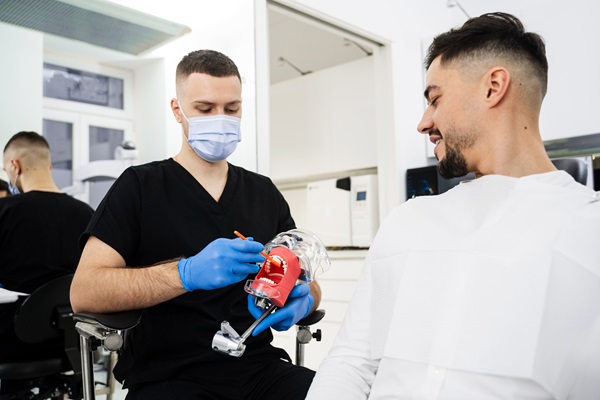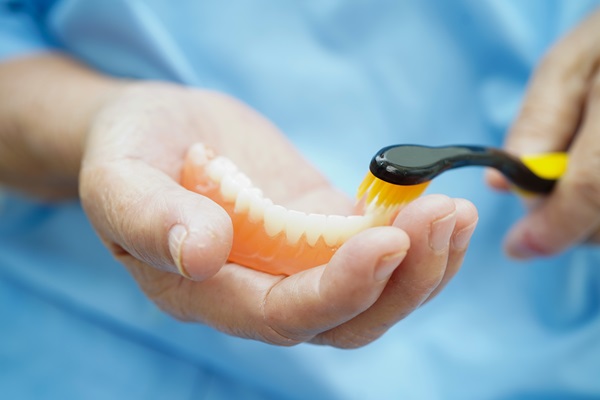Oral Surgery and Impacted Teeth

Oral surgery is often necessary to remove impacted teeth. A tooth is said to be impacted if it fails to emerge fully through the gum tissues because something inhibited its eruption, such as bone, malocclusion, cysts, dense soft tissue or other teeth. This problem is common with wisdom teeth, usually because there is no longer space on the jaw to allow their emergence.
Diagnosing impacted teeth
An impacted tooth is usually the cause of the following symptoms:
- Tooth decay
- Cysts
- Pain
- Bad breath and unpleasant taste in the mouth
- Jaw swelling and gum inflammation
- Jaw ache and difficulty opening the mouth
To make a diagnosis, the dentist will check for swollen gums and indications of infection such as inflammation, drainage and tenderness. They will also ask the patient about the symptoms and their oral hygiene routine. A diagnosis will be confirmed with dental x-rays, which may also show damage to other teeth or the jaw. X-rays help to show the precise position of the impacted teeth and allow the oral surgeon to determine the best approach for extraction.
Oral surgery for impacted teeth
The procedure is usually performed on an outpatient basis, and local or general anesthetic may be used based on the severity of the situation. First, the dentist will make an incision in the gum and remove any bone material in the way before getting to the tooth. After removing the tooth, the dental professional will stitch up the incision and pack gauze over the empty tooth socket.
If the tooth is too big to be removed at once or if it erupts at an angle, the surgeon will break the tooth into smaller pieces using a drill. It is less distressing for patients to remove the tooth in pieces, and the objective is to keep them as comfortable as possible. The dentist may delay the procedure if the tooth is already infected; in that case, they may recommend antibiotics and wait a while before performing the extraction surgery.
After oral surgery
After the treatment, the patient will leave with instructions regarding diet, oral hygiene and measures to manage common side effects such as postprocedural pain and swelling. These side effects are minor and should disappear after a few days. If the symptoms persist, patients must contact their dentist as soon as possible.
The anesthetic may cause nausea in some patients, but the effects stop after a few hours. There may be signs of blood seepage or oozing in the first one or two days. After eating a diet of soft foods for some days, patients can return to their regular meals. Using pain relievers after the surgery can help with the discomfort or pain.
Do you have impacted teeth?
Leaving impacted teeth unremoved may cause serious complications such as infections, teeth misalignment and cysts. Undergoing oral surgery to remove the affected teeth early in life helps make the process easier and seamless. If you are experiencing symptoms of impacted teeth, contact our office immediately for an appointment.
Request an appointment here: https://www.michianafamilydental.com or call Michiana Family Dental at (574) 349-2073 for an appointment in our South Bend office.
Check out what others are saying about our dental services on Yelp: Oral Surgery in South Bend, IN.
Recent Posts
Learning about some of the more commonly used oral surgery procedures allows dental patients to understand more about any procedures that can improve their dental health. Updated dental technologies allow dental surgery to be quick and safe, giving patients peace of mind. Know that a general dentist can typically perform certain types of surgical procedures.With…
Learning more about the oral surgery treatments now available for smile makeovers is something everyone should do when interested in improving the way their smile looks. There are more cosmetic dentistry options available than ever before for you to choose from, which means you have lots of options when it comes to cosmetically designing your…
Dental implant surgery involves the replacement of missing teeth with a surgically inserted metal post. This oral surgery is becoming increasingly popular every passing day. If you are considering dental implants, you will need oral surgery. You should prepare early for the procedures that may be involved.A patient may need oral surgery to resolve problems…
If you are missing teeth, it can be both a cosmetic annoyance and a health issue. Luckily, your dentist can treat this issue and help you regain a beautiful smile. There are various effective solutions you can choose from. Your dentist can discuss the benefits and drawbacks of each of these so you can make…


